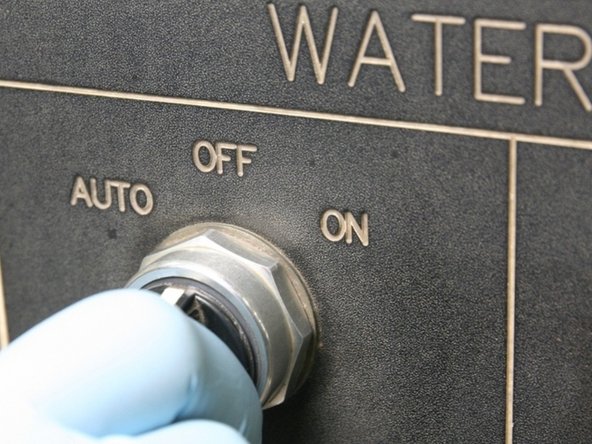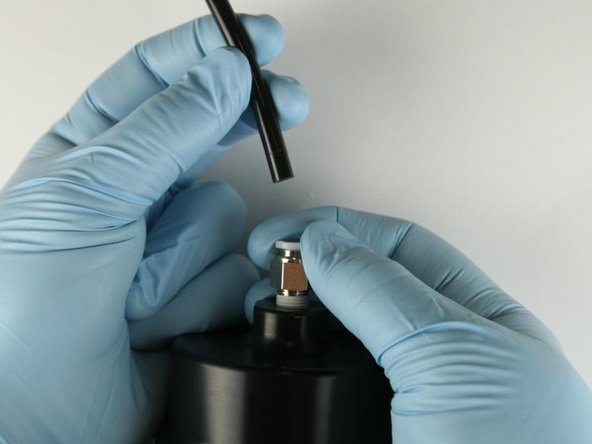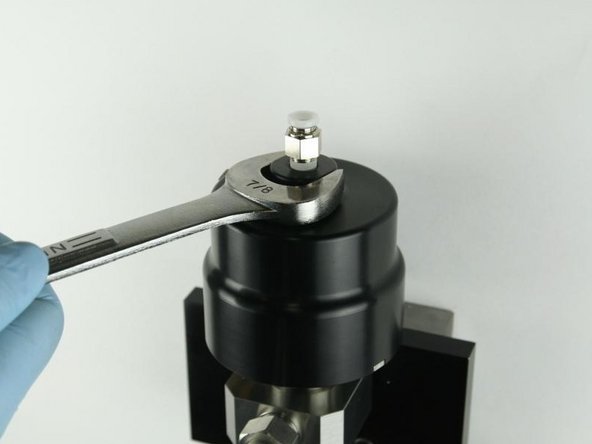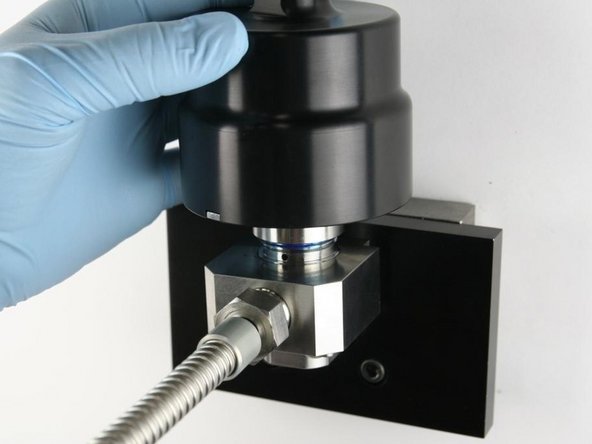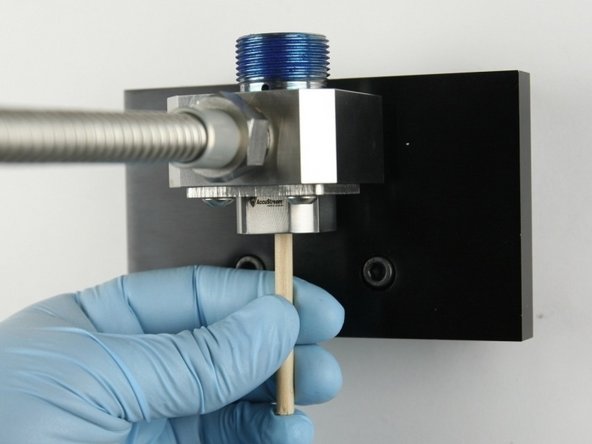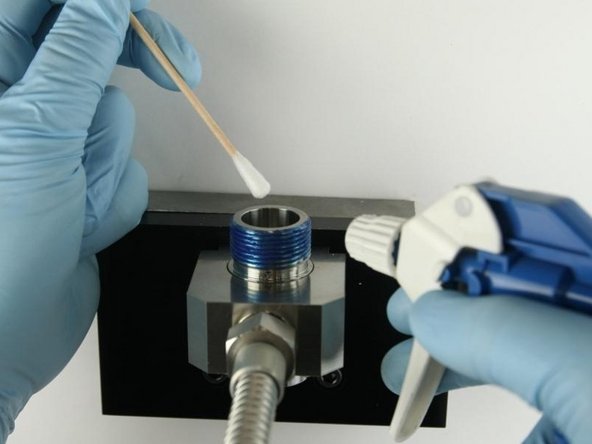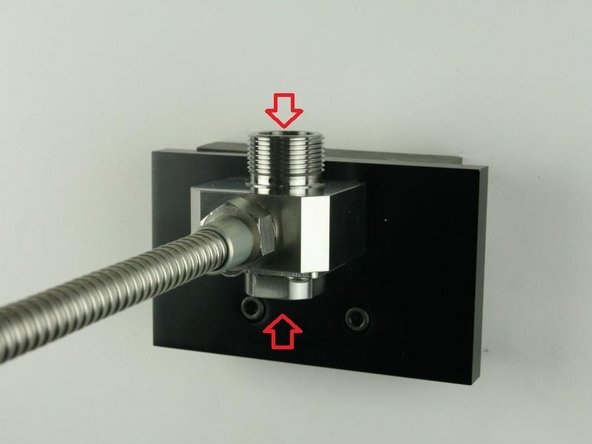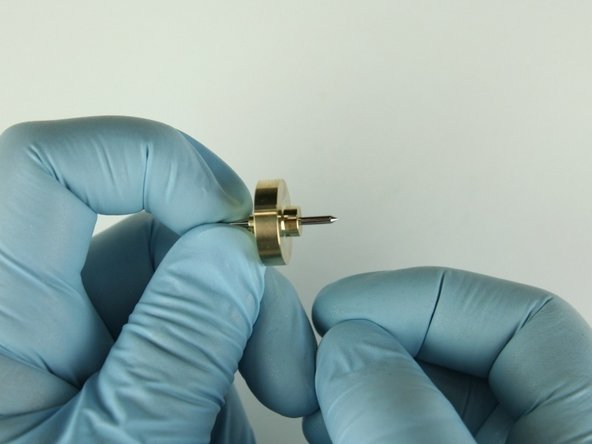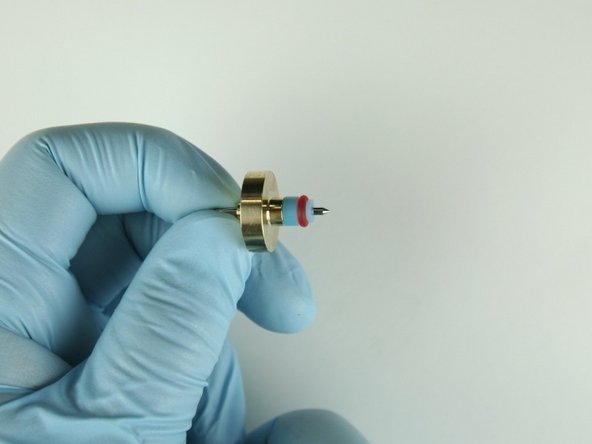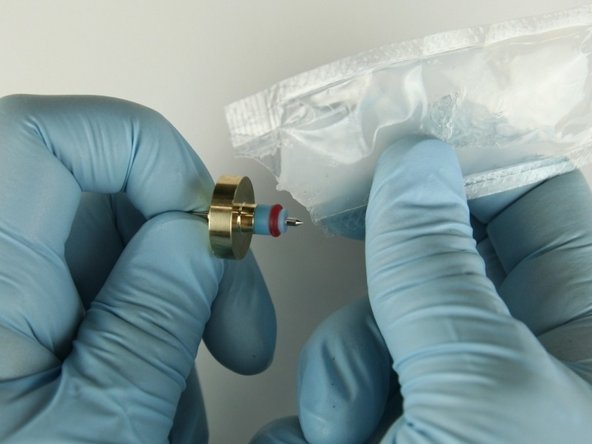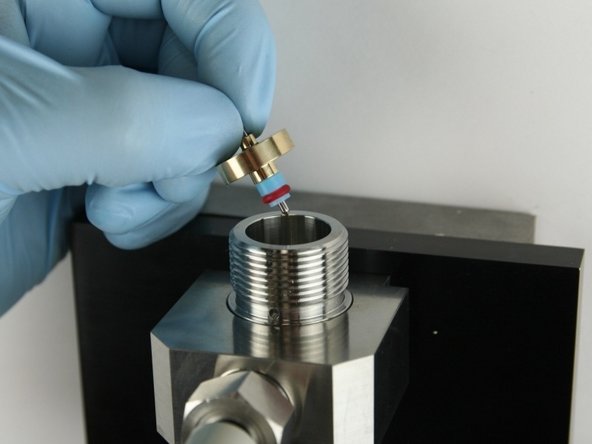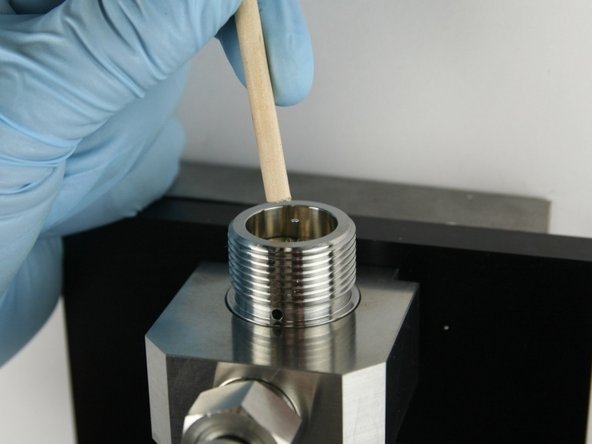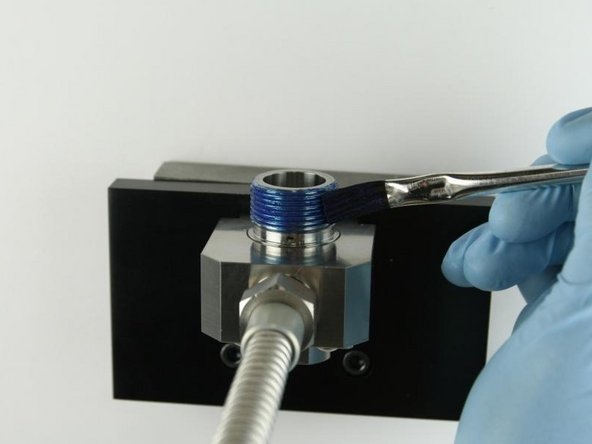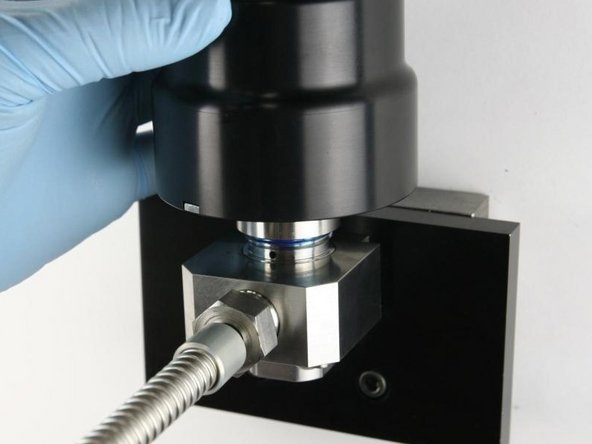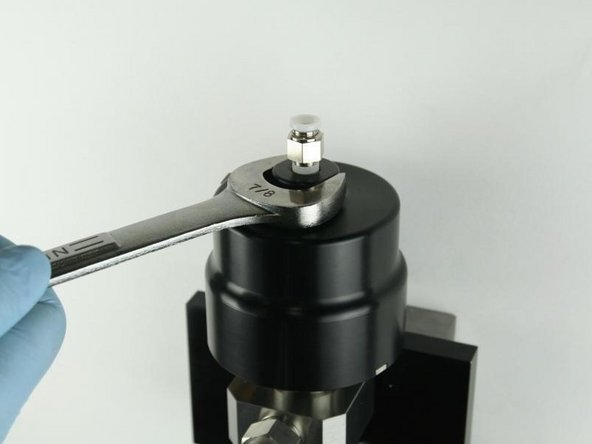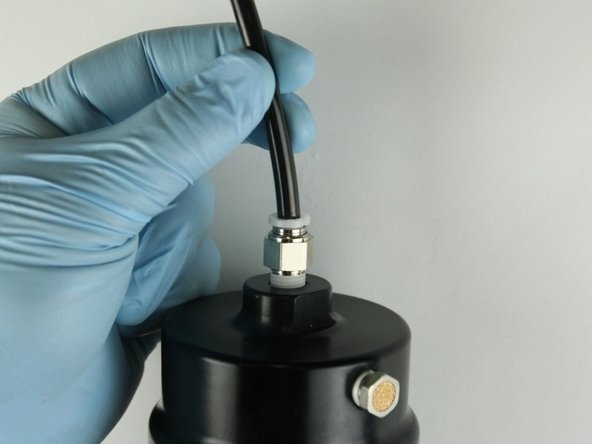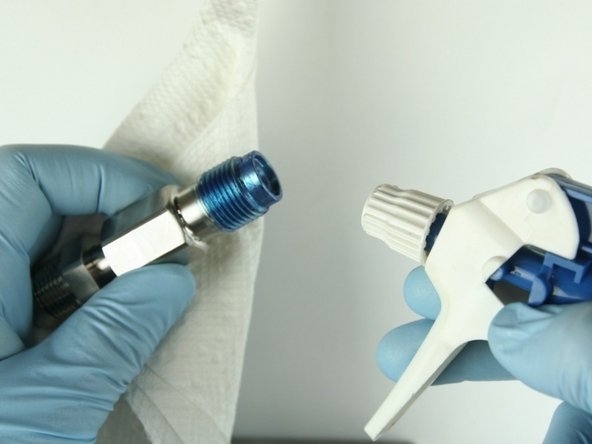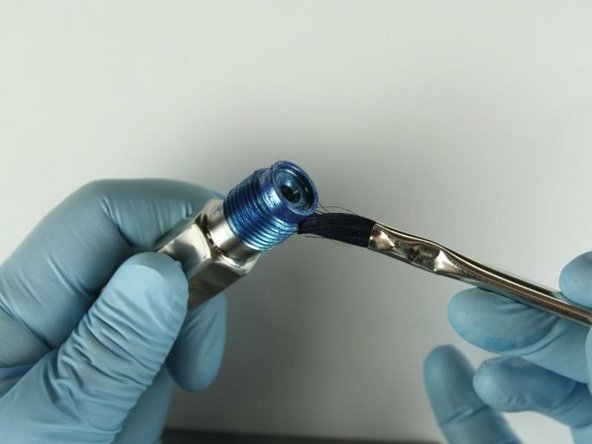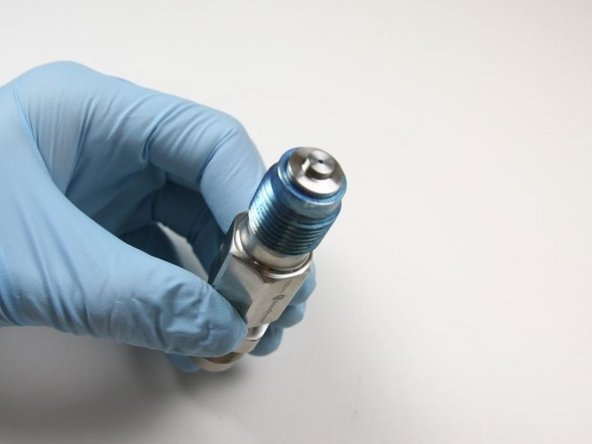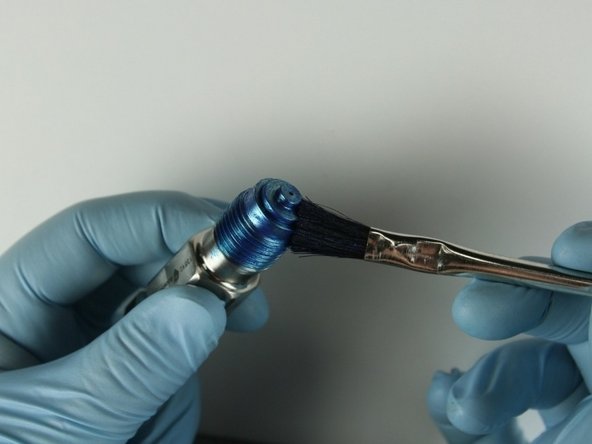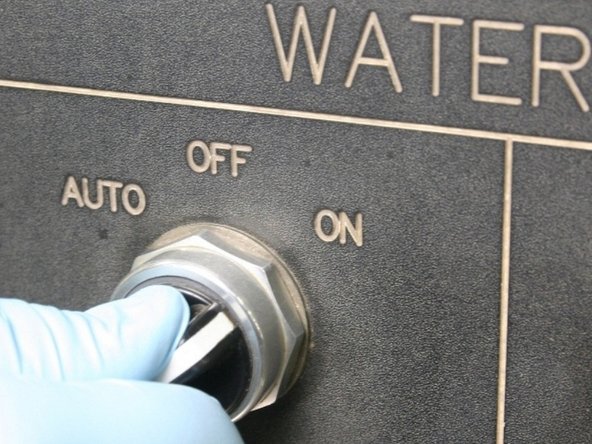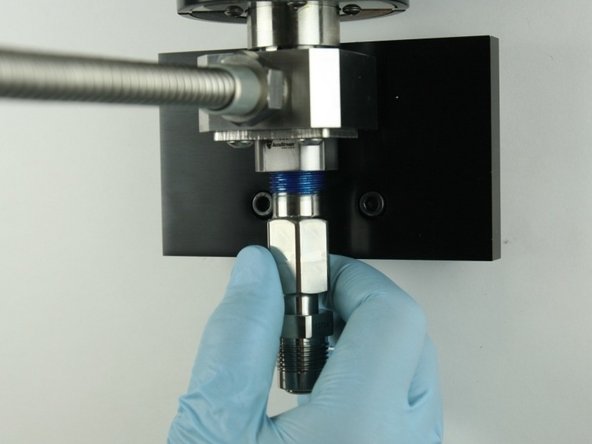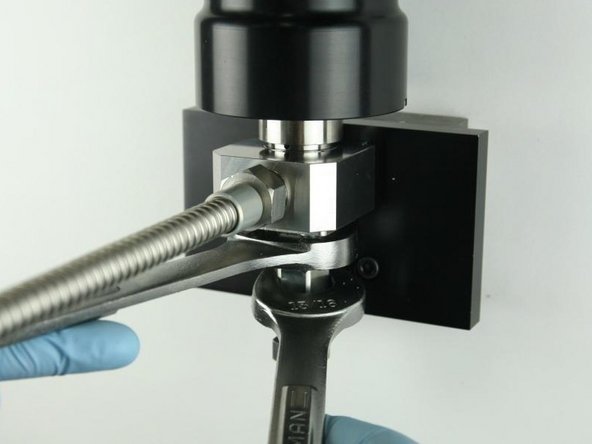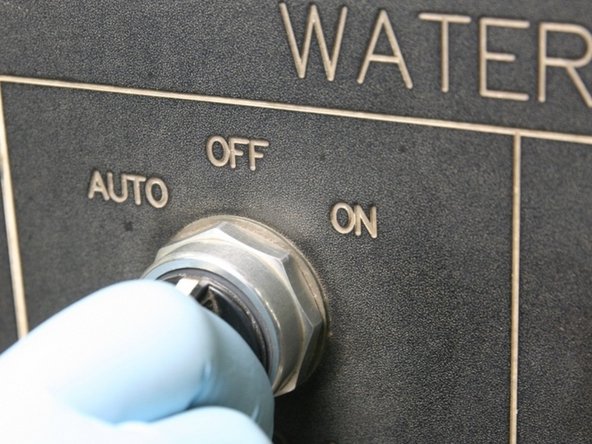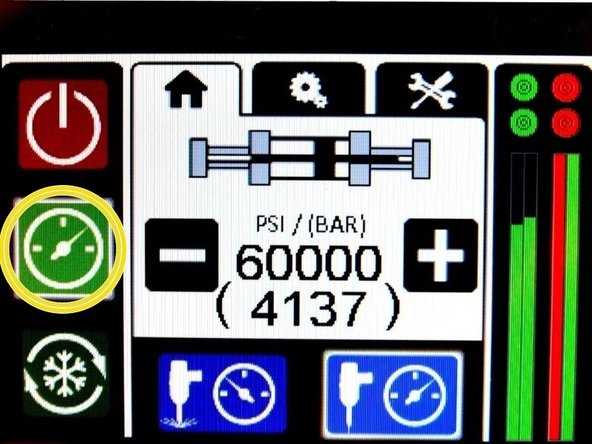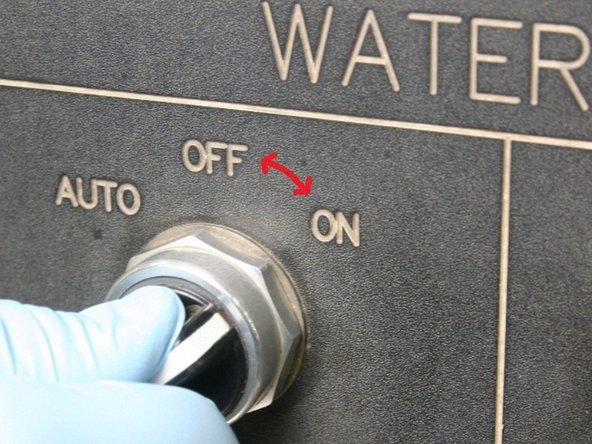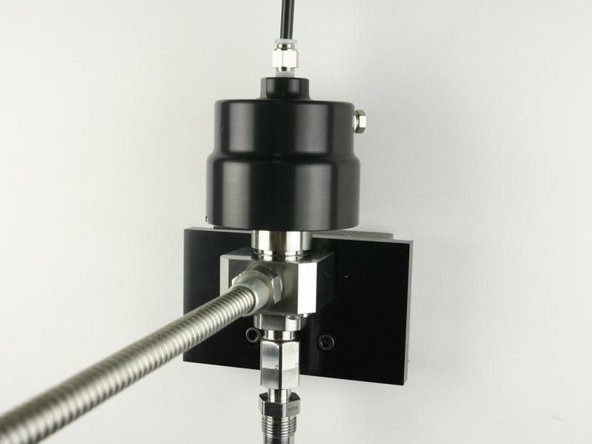-
-
-
The components can be replaced with the valve body in the mounting collar.
-
Loosen the adapter from the valve body using a 1" and 13/16" wrench.
-
Unthread the adapter from the valve body.
-
-
-
Unthread the actuator from the valve body.
-
Remove all the valve components using the included dowel.
-
Thoroughly clean the interior/exterior of the valve body before replacing the components.
-
-
-
Make sure the top and bottom of the bore for cracks/blemishes. If excessive wear or cracks are visible, replace the valve body.
-
Slide the needle bearing onto the needle point with the smaller stepped side away from the needle point.
-
Slide the high-pressure valve seal onto the needle point with the O-ring away from the needle bearing.
-
-
-
Apply a high-pressure lubricant to the outside diameter of the high-pressure valve seal.
-
Put the needle point at the top of the valve body.
-
Use the dowel to push the needle in the valve body until the needle bearing bottoms out.
-
-
-
Reconnect the air line to the top of the actuator.
-
Clean the adapter of all Blue Goop with isopropyl alcohol or a similar cleaning agent.
-
Reapply Blue Goop to the top threads and to the top of the adapter.
-
-
-
Put the seat at the top of the adapter with the flat side towards the adapter.
-
Apply Blue Goop to the top of the seat.
-
Turn the air to the actuator ON.
-
-
-
Thread the adapter into the valve body.
-
Tighten the adapter into the valve body using a 1" and 13/16" wrench.
-
Turn the air to the actuator OFF.
-
-
-
Apply water pressure to the valve assembly to verify that there are no leaks
-
Quickly cycle the valve on and off a few times to purge the system of all contaminants before installing the cutting head.
-
Reinstall the cutting head and continue the cutting process.
-
Cancel: I did not complete this guide.
9 other people completed this guide.






